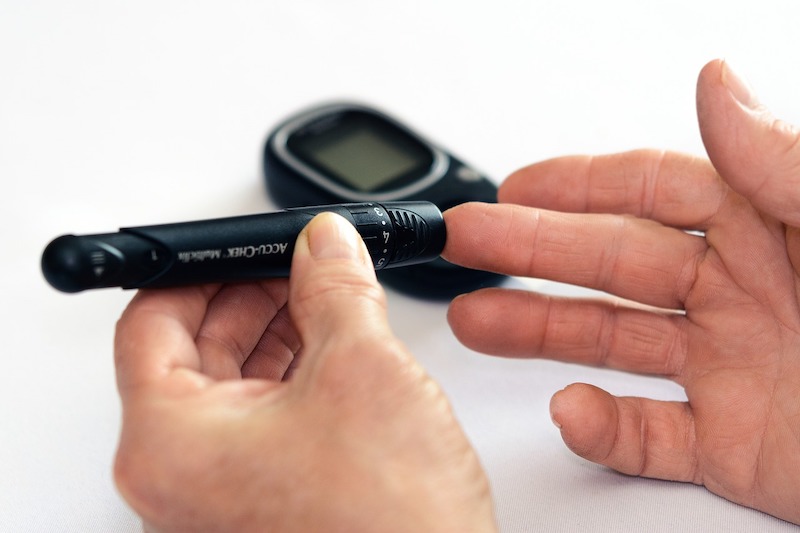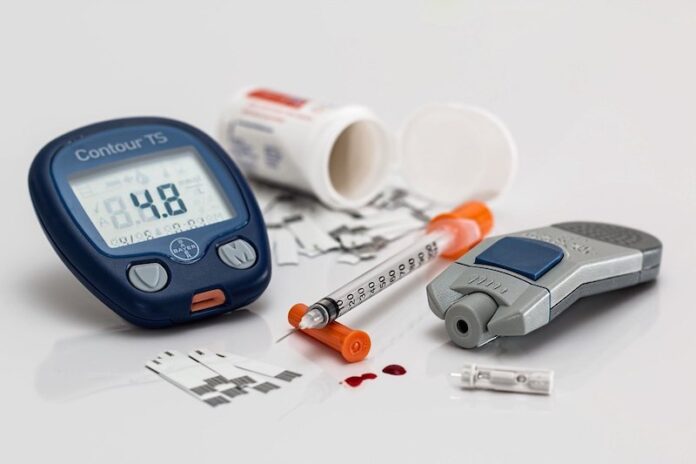Diabetes is a disease that is frequently tending to be widespread today. About 7 million people in the world have diabetes, which means that more than 5% of the entire population has this disease. There are two types: type 1 and type 2 diabetes. Both are conditions that occur when your blood sugar level becomes above normal. Diabetes type 1 can happen so suddenly without warning signs or symptoms. In contrast, diabetes type 2 could be acquired by unhealthy lifestyle choices, such as overeating foods with sugar and fat or quitting exercise.
Monitoring your diabetes health is essential, and you need to keep an eye on everything. You will want to check and monitor your weight, blood glucose levels, blood pressure, cholesterol, and other factors. Here are some tips on how to monitor your diabetes health through testing your blood sugar levels.
Use Diabetes Test At The Comfort Of Your Home
One thing you want to monitor with your diabetes is your blood sugar levels. Your doctor can help you find the best way to do this. You may need to use a finger prick or a lancet to get a drop of blood from your finger and place it on a test strip that will measure your glucose level using chemicals in the strip. Some people use alternative quick and easy diabetes tests using a hemoglobin A1c. The test measures your blood glucose level over a couple of months instead.
Monitoring your blood glucose level will give you an idea of whether the medication you are taking is working or not. You should also monitor other factors, such as your cholesterol and LDL levels, critical in determining your health status. The good news is that testing these diabetes health factors has been made easier by testing them from the comfort of your own home. Thanks to companies like The Health Hub, which have created different diabetic test kits for easy testing so that you can monitor everything from the comfort of your own home.

Monitor Your Diet And Exercise Regimen
Your doctor and the person who educates you on diabetes should provide information about what foods you can eat, how much exercise you need, and other factors that play a role in keeping your body healthy when suffering from this condition. You could try using a journal or an online food diary to make sure that you write down everything you eat during the day. An exercise schedule is also crucial for someone who has diabetes since it’s crucial to maintain an active lifestyle without overdoing things when suffering from fatigue because of your disease. Maintaining a healthy lifestyle will also be helpful once you’re done with your treatment since it will help keep diabetes away.
Monitor Your Blood Pressure And Cholesterol Levels
High blood pressure or hypertension can happen when you have diabetes, which means that it’s necessary to monitor your blood pressure levels through regular visits to your doctor. Heart problems are common among people who suffer from this condition, so make sure that you test your cholesterol levels regularly as well. Your doctor should tell you how often you will need to do blood tests on your cholesterol and blood pressure levels. They should also give you information about the best kind of meals for avoiding these complications. Getting regular check-ups is essential, so make sure that you go out more often than before or schedule a visit with your doctor every few months until everything becomes normal once again. It’s common sense, but it’s always better to get tested than not taking action and regretting it later in life.
Detect Vision Problems As Soon As Possible
Vision problems are common when having diabetes. They might not be severe initially, but you could start noticing blurry vision when reading or driving. This can be an early sign of diabetic retinopathy that needs to be diagnosed to become treatable before it gets worse. It would help if you regularly had your eyes checked during check-ups to ensure that everything is normal with your vision since there are no symptoms associated with this condition until it’s too late and you lose sight in one eye. You’ll want to get this treated as soon as possible since blindness after such a diagnosis will significantly limit your lifestyle, especially if you like doing things independently without depending on other people.
Monitor Your Kidney Function
People with diabetes can have kidney problems because glucose-rich urine damages these tiny organs. Nephropathy results from hypertension, and you will need to regularly monitor your blood pressure levels through blood tests if diabetic nephropathy occurs. Regular check-ups are necessary for doctors to watch your kidneys and see if you have any fragments of protein being filtered through your kidneys. In the case of nephropathy, these appointments will become more frequent until they can provide a solution that will be suitable for avoiding further complications from this condition in the future. This will be a sign that something has been damaged, and it’s necessary to start treating the disease to stop any further damage from occurring.
Monitor Your Feet And Watch Out For Any Sores Or Red Spots
High sugar levels in the body affect many different organs, making it easy for infections to spread throughout the body when you have diabetes. The most common infection happens when sores aren’t noticed on feet until too late. This is why you should always check your feet for any sores or red spots that can signify an infection. If you have diabetes, regular visits to the doctor might also become necessary once in a while so that they can check your feet and make sure everything is fine with them. You will need to keep an eye on anything unusual throughout the body, not just when it comes to foot health, since this could turn out to be very dangerous if left untreated for several days or weeks.
In conclusion, monitoring your health is very important when you have diabetes. Make sure that you visit the doctor as often as possible and always do whatever they recommend to avoid complications from diabetes such as blindness, kidney problems, and foot infections which might turn out to be life-threatening if left untreated.

